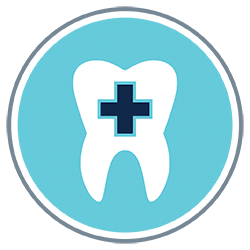GENERAL DENTISTRY
Preventive dental care is the foundation of good oral health throughout your life.

O’Fallon Dental Works offers comprehensive general dentistry services for our patients, including:
Taking care of your overall health begins with taking care of your oral health. Our expert dental team is here to help you and your family establish dental routines and habits that help you maintain the highest oral health. We offer a variety of general and preventive care services.
Preventative Dental Care
Preventative dental care is all about identifying dental problems early before they become more serious dental health issues. Preventative dentistry also ensures an opportunity to educate patients on proper brushing and flossing techniques to maintain good oral health between checkups. Through preventative care, dentists are able to catch problems early, such as cavities, gingivitis, enamel loss and periodontitis and offer treatments that are less invasive and less painful.
At home, you may notice your gums bleeding when you brush or floss. A common finding at your 6 month check-up is inflamed or swollen gums, also known as gingivitis. Did you know that gingivitis is reversible? Find out how to reverse gingivitis at your 6 month check-up with O’Fallon Dental Works.
The Benefits of Preventative Dental Care
Everyone benefits from preventative care especially children and teenagers. Dental sealants and fluoride treatments help prevent decay in growing children. As an adult, preventative dental care helps you keep your natural teeth, avoid extractions and more invasive procedures. Other benefits of preventative care dentistry include:
- Regular communication with your dentist about any problems, such as tooth sensitivity, that you are experiencing
- Lowers your risk of developing cavities and gum disease
- Identify dental problems early to minimize treatment
- Obtain referrals to other dental specialists, if needed
- Preteens and teens can be referred to orthodontists at the right time
- Utilizing preventative measures, such as dental sealants, to help children avoid cavities
- Preserve your teeth for a lifetime
Oral Hygiene and Teeth Cleaning
Great dental health starts with excellent preventative care. For optimal dental health, it is important to maintain a twice daily oral hygiene routine performed at home. Regular brushing and flossing will help make your annual visits a breeze. Home oral hygiene care directly contributes to your overall oral health and preventative care can decrease the need for more invasive and extensive dental procedures in the future.

